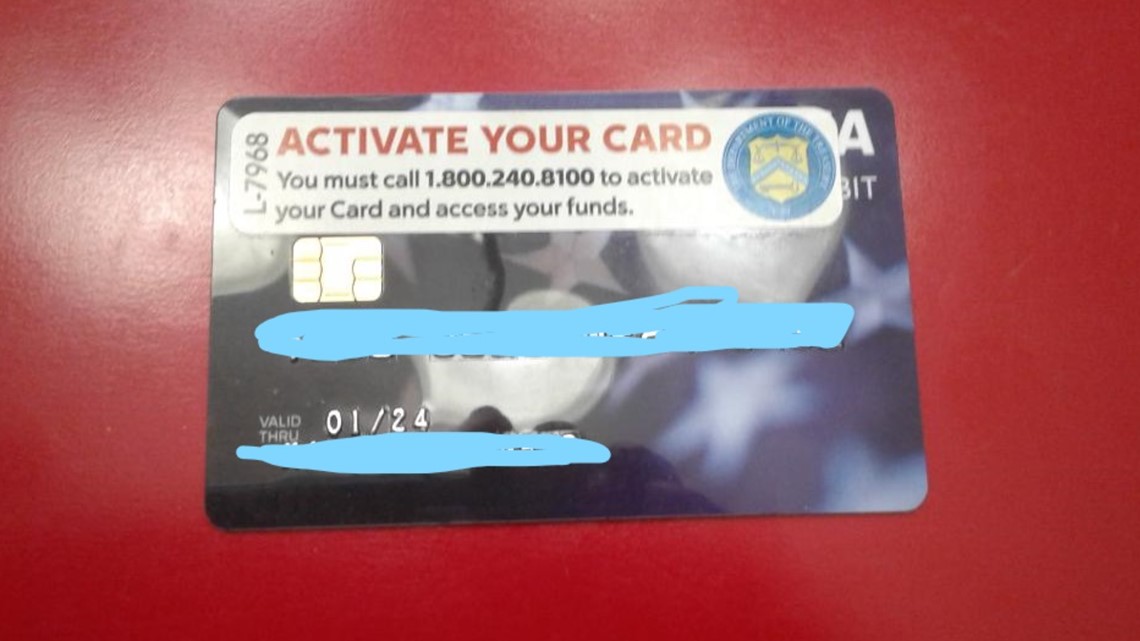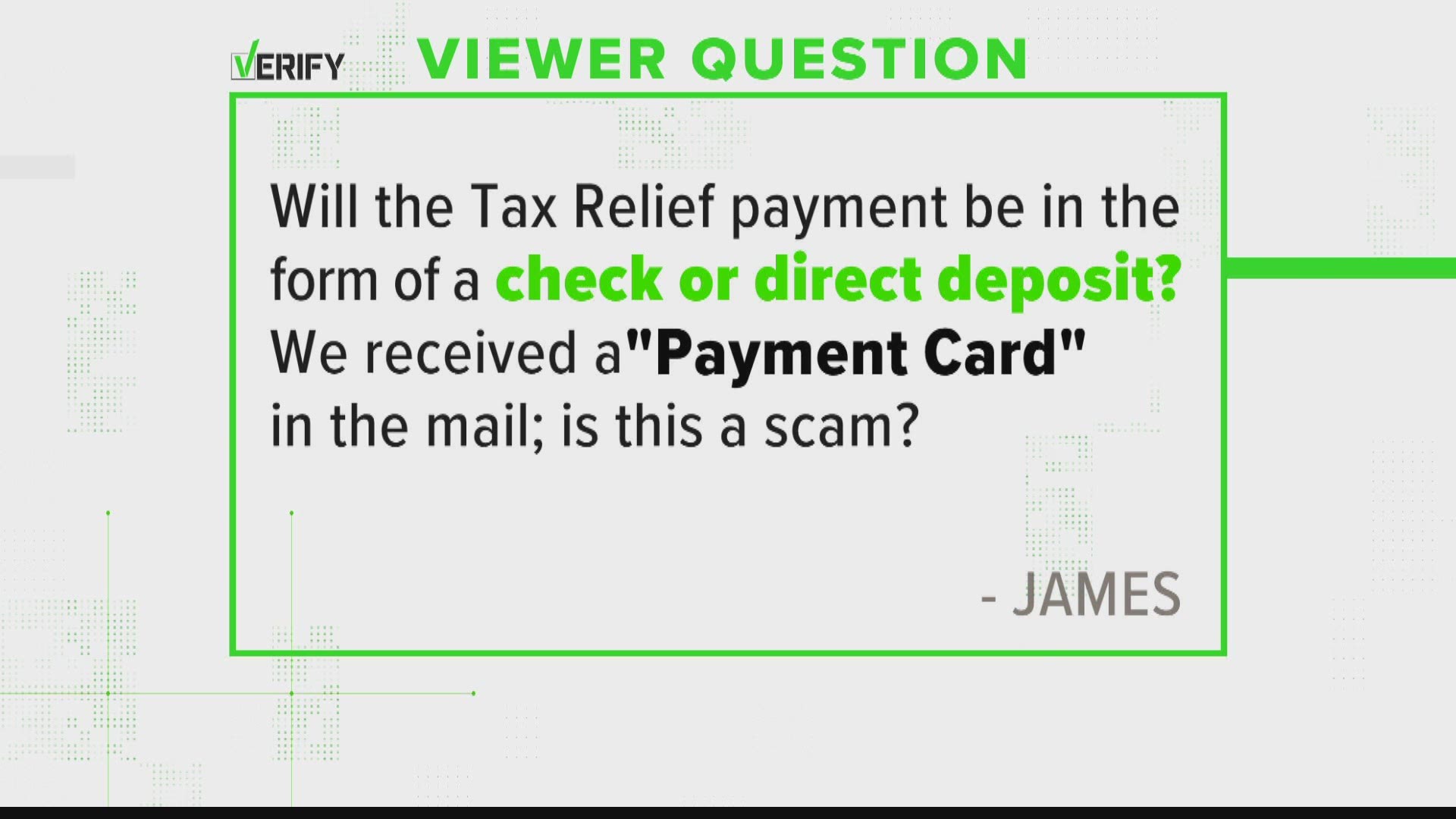INDIANAPOLIS — Last year’s first round of stimulus payments involved money directly deposited into bank accounts or actual checks sent to millions of people.
The current stimulus payments of up to $600 per person include another option, which is causing some confusion and questions from skeptical recipients.
James wrote to the 13News VERIFY Team to ask, “Will the Tax Relief payment be in the form of a check or direct deposit? We received a ‘Payment Card’ in the mail; is this a scam?” He included a photo of a blue debit card with white stars and an activation sticker that includes a toll free number and the seal of the U.S. Treasury Department.
The card James received does appear to be a legitimate stimulus payment. To answer his question, 13News consulted with the IRS and Metabank, which is the U.S. Treasury Department’s financial agent.
The photo James sent matches the photo of a real stimulus debit card that the IRS started mailing to millions of people two weeks ago.


Earlier this month, the IRS and Treasury Department announced in addition to delivering more than 100 million stimulus payments by direct deposit, it is also sending 8 million Economic Impact Payments by prepaid debit card.
The IRS said the cards are being sent in white envelopes with the U.S. Treasury seal. The envelope also says “Economic Impact Payment Card” on the return address and “Important information about your Economic Impact Payment” on the front. The debit card is blue with white stars, includes the VISA logo on the front and MetaBank on the back. (You can see photos of the envelope and the card at this IRS website.)
The bank has a website set up that explains how to activate and use the EIP card.
“Taxpayers should note that the form of payment for the second mailed EIP may be different than the first mailed EIP. Some people who received a paper check last time might receive a prepaid debit card this time, and some people who received a prepaid debit card last time may receive a paper check,” the IRS announced earlier this month in a press release.
So if you receive a card from the U.S. Treasury that matches that description, we can verify it is real, not a scam.
What if you get a text from the IRS?
Other viewers, like Eva, told 13News they received a text about a stimulus debit card, and they’re wondering “is this a scam or is it true?”
The IRS has been actively warning tax payers it does NOT send text messages, emails or make phone calls to verify your personal or financial information before sending Economic Impact Payments. So if you get any of those, do not respond! 13News can verify those types of unsolicited messages are NOT legitimate and likely a scam by someone trying to steal your personal information.
If you want to check on the status of your stimulus payment, you can use the IRS’s online Get My Payment tool.
And if you see something suspicious you’d like us to check out for you, send us an email at VERIFY@wthr.com.

